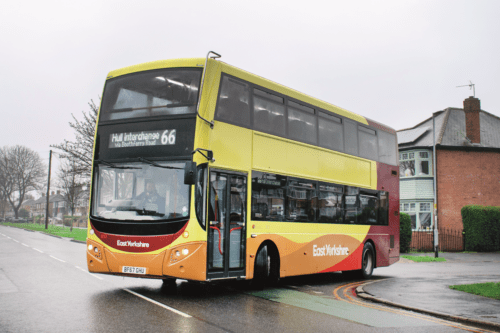
Rural regions have been prioritised in the latest round of zero-emission bus funding.
25 councils across England are to receive funding for cleaner, more modern and more reliable bus fleets, with rural areas prioritised as part of the ZEBRA 2 funding scheme, helping to cement the UK’s place as a European leader in the adoption of zero-emission bus technology.
The Government is to invest a further £143 million to roll out almost 1,000 new zero-emission buses in England, Transport Secretary Mark Harper confirmed on Friday 22 March. A total of 955 zero-emission buses will be procured as 25 councils receive funding to decarbonise their bus fleets, with rural areas prioritised as part of the Government’s plan to improve local transport. The funding comes from the second round of the Zero Emission Bus Regional Areas (ZEBRA) programme, the first round of which the Government credits for taking Britain into the European lead for 2023 electric bus registrations. The second round of ZEBRA funding follows an initial £270 million distributed to 16 Local Transport Authorities (LTAs) and councils from the first round of the scheme. To make sure more rural parts of England, where the journey towards decarbonising buses is in its early stages, benefit from the funding, the Government has prioritised the first £40 million for rural communities.
Transport Secretary Mark Harper said: “As part of our plan to improve local transport across the country, we’re providing a further £143 million to improve journeys for bus passengers particularly in rural areas, with almost a thousand brand new, zero-emission buses due to hit the road. This latest investment into our bus fleet comes on top of the £3.5 billion we have invested into our bus network since 2020, protecting and improving bus routes into 2025 as well as extending the £2 bus fare cap until the end of 2024, made possible by reallocated HS2 funding.”
Alison Edwards, Director of Policy & External Relations at the Confederation of Passenger Transport, said: “CPT welcomes this support from Government to help accelerate vital public and private investment in new zero emissions vehicles and charging infrastructure. The transition to a zero-emission bus fleet is a huge opportunity for Britain to lead the world in creating a modern zero-emission bus network that offers a growing number of passengers one of the most sustainable forms of transport.”
For a funding breakdown see this weeks issue!

